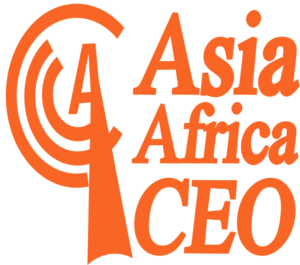On March 17, 2025, Rwanda announced the immediate severance of diplomatic relations with Belgium, marking a significant escalation in tensions between the two nations. This decision comes amid deep disagreements related to the ongoing conflict in the Democratic Republic of Congo (DRC), where the M23 rebel group, reportedly backed by Rwanda, is fighting against the Congolese government.
Historical Context of Rwanda-Belgium Relations
Belgium, the former colonial power in Rwanda from 1920 to 1962, has maintained a complex relationship with Kigali since the country’s independence. The scars of colonial rule and the tragic events of the 1994 genocide have deeply influenced their diplomatic ties. In recent years, Belgium has been vocal in its criticism of Rwanda, particularly regarding its alleged involvement in regional conflicts.
Mutual Accusations
According to the official statement from Rwanda’s Ministry of Foreign Affairs, the diplomatic break is a response to Belgium’s “continued attempts to maintain its neocolonial illusions.” Kigali accused Brussels of “siding with Kinshasa in the ongoing conflict in the DRC and systematically mobilizing against Rwanda in various forums, using lies and manipulation to create an unjustified hostile opinion against Rwanda with the aim of destabilizing the country and the region.”
In response, Belgium called Rwanda’s decision “disproportionate” and declared Rwandan diplomats in Belgium persona non grata. Belgian Foreign Minister Maxime Prévot expressed regret over the situation, stating that this move demonstrates Rwanda’s unwillingness to engage in dialogue when disagreements arise.
The Role of the DRC Conflict
The ongoing conflict in the DRC, involving the M23 rebel group, is at the heart of these tensions. The M23, reportedly supported by Rwanda according to several international reports, has intensified its offensives in eastern DRC, capturing key cities such as Goma in January and Bukavu in February 2025.
Belgium has been one of the most outspoken critics of Rwanda’s alleged role in this conflict. Brussels actively pushed for European Union (EU) sanctions against Kigali, accusing it of violating the DRC’s sovereignty. This stance has further strained relations between the two countries.
International Reactions
The international community is closely watching the escalating diplomatic rift between Rwanda and Belgium. Mediation efforts, particularly those led by Angola, aim to establish a lasting ceasefire in the Great Lakes region. Peace talks are scheduled to take place in Luanda between the Congolese government and the M23, with both parties sending representatives.
The EU, at Belgium’s urging, has imposed targeted sanctions against Rwandan and Congolese individuals linked to the conflict. These sanctions include travel bans and asset freezes within the EU.
Economic and Political Consequences
The severance of diplomatic relations between Rwanda and Belgium could have significant economic implications. Belgium is a key trade partner and development aid provider for Rwanda. The suspension of aid programs and potential disruptions in trade could impact Rwanda’s economy.
Politically, this move risks further isolating Rwanda on the international stage. Accusations of supporting M23 rebels and increasing tensions with Western partners may damage Rwanda’s global reputation and diplomatic standing.
Conclusion
Rwanda’s decision to cut diplomatic ties with Belgium marks a critical moment in their relations. This development reflects the escalating tensions over the DRC conflict and highlights the complexity of political dynamics in the Great Lakes region. The international community must intensify efforts to promote dialogue and peace in this volatile area.
Want to stay on top of Asia-Africa business news?
Follow us on Facebook, X (Twitter), Instagram, and LinkedIn.


